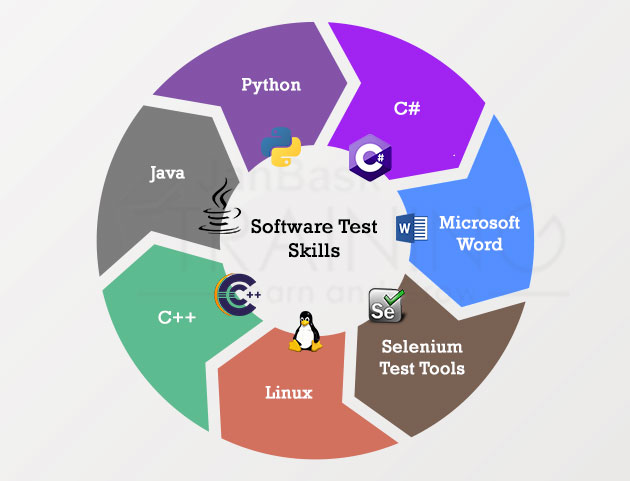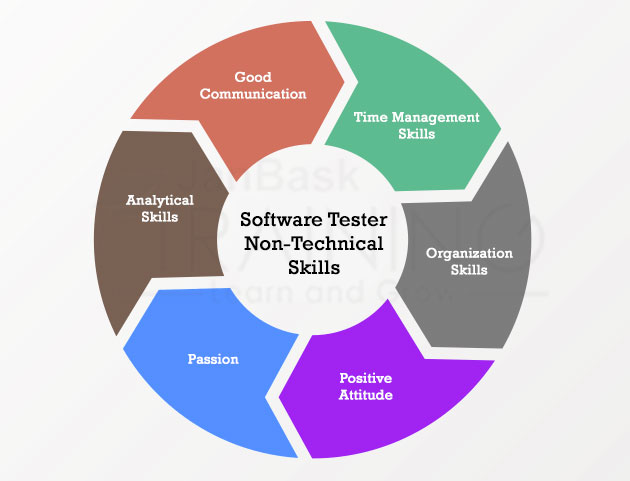25
JulInternational Womens Day : Flat 30% off on live classes + 2 free self-paced courses - SCHEDULE CALL
A software test engineer is a part of an elaborate team of software engineers who create complex product solutions in addition to maintaining the manual or automated testing of products. Usually, a minimum bachelor's degree is required in computer science, engineering or other similar fields to become a software tester. Regular working hours and fixed schedule are expected for test engineers. Travel is optional but experience in latest technologies is essential to move ahead in the testing field. But before deciding to jump into this field, there is the question of the average QA engineer salary! Here, in this article, we will discuss a software test engineer’s job and the average testing engineer salary!
| Education Background | Bachelor degree, training or diploma in the similar program |
| Key Skills | Critical Thinking, programming skills, active listener, comprehension reading skills |
| Work Environment | Basic knowledge of computer servers, operating systems, long sitting hours etc. |
| Job Titles | QA Analyst, QA director, Software Quality Engineer, Product quality engineer, Test Manager etc. |
The average testing engineer salary is estimated to be $85,594 per year in the USA in March 2019. The average software testing engineer salary range between $68,000 to $104,000 and it varies because of multiple factors like location, experience, knowledge base, etc. Based on a recent survey, the job market for software engineers is quite active in India and the United States.

A software test engineer develops test cases, test automation scripts for testing software products. The other duties of a software engineer involve effective communication with customers to cater to varied software demands, and developing automated tests using programming languages like Java, Visual Basics, and so on.
Software test engineers should give strong attention to details through writing diagrams, flow charts, graphs etc. Confidentiality is the must requirement for most of the testing operations. Another important responsibility of a test engineer involves creating test reports and managing all result sets.
Read: Software QA Tester Resume Samples Tips for Experienced & Fresher

The average software test engineer salary on the basis of experience shows a positive trend for software test engineers.
 Most notably, Python, Selenium testing tool and Linux are correlated to pay significantly above average respectively. Skills that pay little low as compared to the above-mentioned skills include Microsoft Word and Dotnet. Engineers having good experience in Java tends to be well versed in Microsoft Word. For a newbie, here is our testing approach to learning.
Most notably, Python, Selenium testing tool and Linux are correlated to pay significantly above average respectively. Skills that pay little low as compared to the above-mentioned skills include Microsoft Word and Dotnet. Engineers having good experience in Java tends to be well versed in Microsoft Word. For a newbie, here is our testing approach to learning.
 The following skills are required to become a good software tester. And for a high software test engineer salary, these are of pivotal importance. Compare these skills with your skills set and determine whether software testing is a reality for you.
The following skills are required to become a good software tester. And for a high software test engineer salary, these are of pivotal importance. Compare these skills with your skills set and determine whether software testing is a reality for you.
Learn QA Software Testing in the Easiest Way
Read: Jmeter Tutorial Guide for Beginners

 Following technical skills are required to become a good software tester. Compare these skills with your existing skills set and determine whether software testing is a reality for you.
Following technical skills are required to become a good software tester. Compare these skills with your existing skills set and determine whether software testing is a reality for you.
This is all about the technical skills required to become a good tester but all of them are not needed for getting hired by Companies. The technical skills requirements generally depend on the job role and Company processes.
Your career progression in the software testing field generally looks like this but it may vary from Company to Company.
Once you get your hands dirty in manual testing, other testing options include:
Read: What is JIRA? JIRA Tutorial Guide for Beginner
QA Software Testing Training

We hope that, through this article, you got in-depth knowledge of a QA tester’s job and the average QA engineer salary. Being a software tester, when you apply for permanent testing jobs, you should have the relevant skills and practical experience that will increase your overall chances of being selected by top Companies. Further, certifications are also considered good and certified software testers are given more priority as compared to others. You can pursue certification of your choice.
Automation tester salaries are increasing year after year. It is a great career option to go for. Many individuals are inclined towards making a career in the testing field. “Manual testing salary” is seemingly one of the most searched words recently.
To know more, you should join the QA certification course at the JanBask Training and learn testing tools and more concepts in depth that are used in a job environment.
Read: Integration Testing Tutorial Guide for Beginner
 Pinterest
Pinterest
 Email
Email
The JanBask Training Team includes certified professionals and expert writers dedicated to helping learners navigate their career journeys in QA, Cybersecurity, Salesforce, and more. Each article is carefully researched and reviewed to ensure quality and relevance.

Cyber Security

QA

Salesforce

Business Analyst

MS SQL Server

Data Science

DevOps

Hadoop

Python

Artificial Intelligence

Machine Learning

Tableau
Search Posts
Related Posts
Receive Latest Materials and Offers on QA Testing Course
Interviews